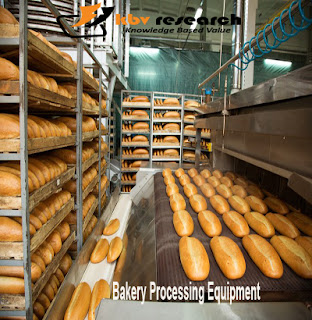Interactive Tables: Not a Luxury But a Necessity
Interactive tables are very convenient to use. Not just that, they are inspiring to prospective employers and colleagues. When you have one, you can expect people to say comments like, "I wish I had one of these at home." Considering as they run away from the same tools as laptops do, they can be used for a wide range of purposes, from basic programming work to gaming, to complex architecture. Interactive tables can be used to make the business one-up.
It does not sound like a touch screen table could ever be used as a regular table, but Interactive tables can surely be used without hindering any functionality. The multi-touch simulated capacitive touch screen of the table just tracks your fingertips, and even if you lean on the table with your arm, it still does not disrupt its work. Tap tables can be quickly moved from point A to point B. Unlike a wall-mounted touch screen monitor, you can easily unplug your touch table, pick it up, and move it to another position without any issues.
Interactive tables can be used in several areas, from dementia and brain training applications and games for people with dementia, social and multi-user gaming, music listening, sing-alongs, quizzes, fitness events, watching movies and programs, internet surfing, Skype calls, and staff training.
Technology has made interactive learning much easier, and school systems around the world are fuelling the growing demand for such an interface. Vendors also concentrate on adding more functionality and making interactive tables simple to use, which in turn helps boost sales among educators of these kinds of tables.
When it comes to attracting the showroom floor at every corporate event, businesses need to be organized not just to stand out from the presenting oppositions, but to genuinely illustrate how their company leaves the competing competitor far, far behind. In order to captivate the meandering crowds, it is important to integrate the very latest technical developments into their exhibits. Not only can state-of-the-art technology help distinguish your booth and company as a trend-setter, but today 's equipment and equipment will easily streamline the whole trade show cycle, rapidly reducing lost time and needless tension on your representative staff.
Today’s companies are fulfilling the need by offering smartphone passers-by control over interactive signage. Shoppers can search for catalogs using smart displays, find deals, and even process their payments. Successful display marketing approaches consider customer purchasing expectations but come up with creative ways to improve them.
Table turnaround times will be minimized and revenues will thus almost double within the first year of the introduction of digital tables. For a median 10-year lifetime, smart tables will have a good return on investment. At the end of the day, interactive tables will be leased for as little as £12 a day, reducing the chance of significant investment and minimizing financial obstacles to entry.
In the issue of dehumanization, companies must guarantee their consumers to never suffer a lack of service or personal touch. It is important to ensure that guests are greeted and seated by a human being and let them know that a waiter is just a touch away should they need assistance. In reality, several patrons choose not to be approached by a waiter scratching his notepad impatiently as they attempt to decide what to eat. Having the ability to browse the menu at ease, make their decision, and order, when they are ready, may potentially lead to a more comfortable dining experience and greater customer service.
Free Valuable Insights: Global Interactive Tables Market to reach a market size of USD 1.3 billion by 2026
Moreover, in providing sophisticated display devices in the vehicle such as the navigation system, digital dashboard, digital rearview mirrors, heads-up monitoring, and others, the automotive industry has seen a rise. In addition, the use of digital signage and touch-based screens in commercial buildings such as malls, stadiums, entertainment centers, and others has expanded due to these facilities’ diverse and comprehensive architecture.
It does not sound like a touch screen table could ever be used as a regular table, but Interactive tables can surely be used without hindering any functionality. The multi-touch simulated capacitive touch screen of the table just tracks your fingertips, and even if you lean on the table with your arm, it still does not disrupt its work. Tap tables can be quickly moved from point A to point B. Unlike a wall-mounted touch screen monitor, you can easily unplug your touch table, pick it up, and move it to another position without any issues.
What are interactive tables?
Interactive tables allow for graphic designs with paintable sensors, and any hard surface can be rendered interactive by using interactive touch screen technologies. Interactive Tables based on Universal Serial Bus (USB) ensure a flexible MIDI controller that can turn any space or surface into an interactive touch-board. MP3 players are usually built into Interactive Tables. These built-in MP3 players can transform touch into sound, and a specific tone can be used to confirm various types of commands provided to the Interactive Tables.Why do we need interactive tables?
Complete with a person-centered view that promotes care through technology, interactive tables appeal to the needs of all home care patients, to keep their minds engaged, and are built for patients with and without dementia. Digital tables are complemented by a range of pre-installed brain stimulation apps, learning apps, and a variety of games and puzzle applications.Interactive tables can be used in several areas, from dementia and brain training applications and games for people with dementia, social and multi-user gaming, music listening, sing-alongs, quizzes, fitness events, watching movies and programs, internet surfing, Skype calls, and staff training.
Who needs interactive tables?
Education
Interactive tables in a classroom are invaluable tools for educators and students alike. In schools, these devices are being increasingly used to facilitate learning. Friendly interfaces, which are preloaded with software and learning materials, help students explore subjects based on grade level, and find solutions to problems.Technology has made interactive learning much easier, and school systems around the world are fuelling the growing demand for such an interface. Vendors also concentrate on adding more functionality and making interactive tables simple to use, which in turn helps boost sales among educators of these kinds of tables.
Exhibition & Trade Shows
Interactive tables are also commonly used in trade shows and exhibitions which involve a clear display as well as multi-touch. As they provide greater visibility and are highly portable, 32 to 65-inch tables are seeing increased demand among displays.When it comes to attracting the showroom floor at every corporate event, businesses need to be organized not just to stand out from the presenting oppositions, but to genuinely illustrate how their company leaves the competing competitor far, far behind. In order to captivate the meandering crowds, it is important to integrate the very latest technical developments into their exhibits. Not only can state-of-the-art technology help distinguish your booth and company as a trend-setter, but today 's equipment and equipment will easily streamline the whole trade show cycle, rapidly reducing lost time and needless tension on your representative staff.
Retail
Interactive retail displays have been used in the past to captivate the imagination and creativity. Smart signs undoubtedly can entertain, but e-Commerce has shown that customers tend to raise and not neglect their purchasing goals.Today’s companies are fulfilling the need by offering smartphone passers-by control over interactive signage. Shoppers can search for catalogs using smart displays, find deals, and even process their payments. Successful display marketing approaches consider customer purchasing expectations but come up with creative ways to improve them.
Concern over interactive tables
Cost of investment
While investment costs that sound overwhelming at first, taking the initial move may theoretically save long-term costs and give your restaurant a competitive edge. Operating expenses are increasing at an unprecedented pace and working harder is no longer an option. By working harder and using technologies to cut overheads, the ROI can be exponential.Table turnaround times will be minimized and revenues will thus almost double within the first year of the introduction of digital tables. For a median 10-year lifetime, smart tables will have a good return on investment. At the end of the day, interactive tables will be leased for as little as £12 a day, reducing the chance of significant investment and minimizing financial obstacles to entry.
Fear of technological change and dehumanization
Old school business owners prefer to postpone technology progress due to fear of transition. New technologies can seem overwhelming, so they'd rather stick on to old business practices than welcome transition merely because it's convenient. Exposure and awareness are also of critical significance because the fear of change does not allow the company to expand or evolve.In the issue of dehumanization, companies must guarantee their consumers to never suffer a lack of service or personal touch. It is important to ensure that guests are greeted and seated by a human being and let them know that a waiter is just a touch away should they need assistance. In reality, several patrons choose not to be approached by a waiter scratching his notepad impatiently as they attempt to decide what to eat. Having the ability to browse the menu at ease, make their decision, and order, when they are ready, may potentially lead to a more comfortable dining experience and greater customer service.
The big picture
As touch-based apps are easier to use, there is a growth in the number of smartphones that have touch sensors. The touch-based devices allow the activity of a display panel which in effect lets the display devices expand. Hence, a wide variety of products in the group of home appliances, such as refrigerators, microwaves, washing machines, and chimneys, are integrated with touch sensor displays.Free Valuable Insights: Global Interactive Tables Market to reach a market size of USD 1.3 billion by 2026
Moreover, in providing sophisticated display devices in the vehicle such as the navigation system, digital dashboard, digital rearview mirrors, heads-up monitoring, and others, the automotive industry has seen a rise. In addition, the use of digital signage and touch-based screens in commercial buildings such as malls, stadiums, entertainment centers, and others has expanded due to these facilities’ diverse and comprehensive architecture.



Comments
Post a Comment